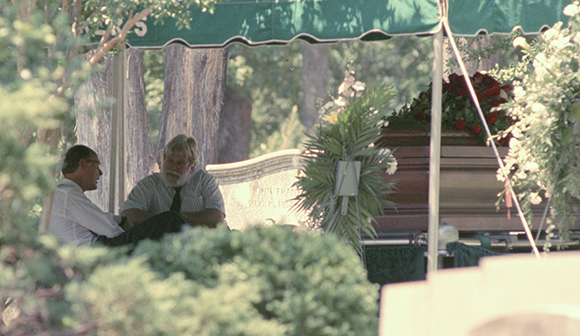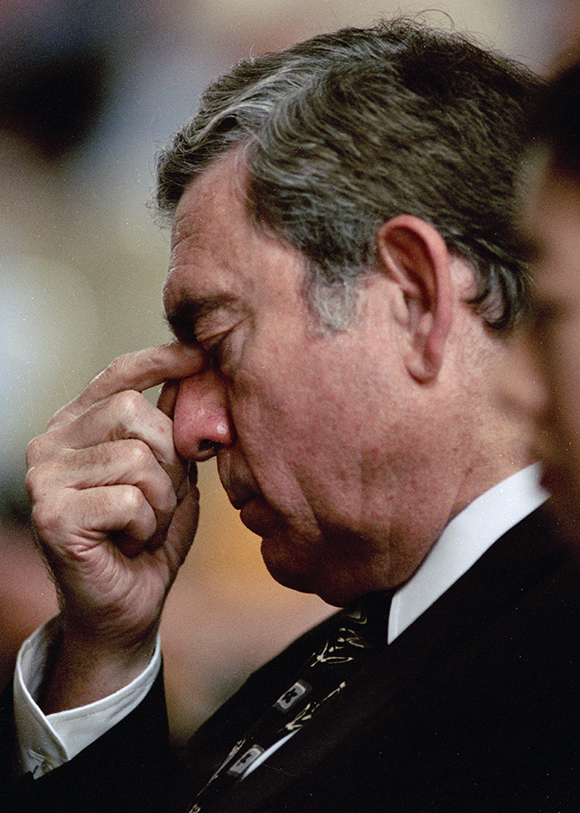. . . was the first-page headline of The Herald-Sun, Durham’s newspaper, on July 9, 1997. At noon the previous day—twenty years ago today—family and friends buried and memorialized Charles Kuralt on the campus of the University of North Carolina at Chapel Hill. The North Carolina Collection Photographic Archives is home to The Herald-Sun photographic negatives, so today we honor that anniversary by featuring the two photographs, cropped as they were then, that accompanied the newspaper’s story.

Kuralt’s connections to Carolina were long and deep. Born in Wilmington, North Carolina in 1934, his family moved to Charlotte in 1945. He attended UNC between 1951 and 1955, and he worked on the student newspaper, The Daily Tar Heel, as a reporter and columnist. In April 1954 he won the student election for the position of editor. After his time at UNC he wrote for two years for The Charlotte Observer before joining the Columbia Broadcasting System in 1957 as a news writer for radio. He became a CBS News correspondent two years later at the age of 25. Kuralt spent nearly his entire career at CBS, retiring May 1, 1994 at the age of 59. He was best known for “On the Road,” the long-running series of Americana short stories that he started in 1967 as segments aired during The CBS Evening News with Walter Cronkite. Others may recall him as the fifteen-year anchor of CBS Sunday Morning, which first aired in 1979. Throughout his celebrated career and wanderings across the country, Kuralt maintained lasting love for his home state.
Charles Kuralt died on July 4, 1997. To mark that anniversary, sister blog A View to Hugh published an account of his passing and memorial service that features photographs by Kuralt’s friend Hugh Morton and documents from the Charles Kuralt Collection and the William C. Friday Papers in the Southern Historical Collection. Morton and Friday were two of the speakers at the memorial service attended by 1,600 people in UNC’s Memorial Hall. UNC’s social media Spotlight webpage republished a short excerpt of that blog post along with the University News Services’ July 8, 1997 story, “Life and legacy of Charles Kuralt honored during service at UNC-CH’s Memorial Hall.”

